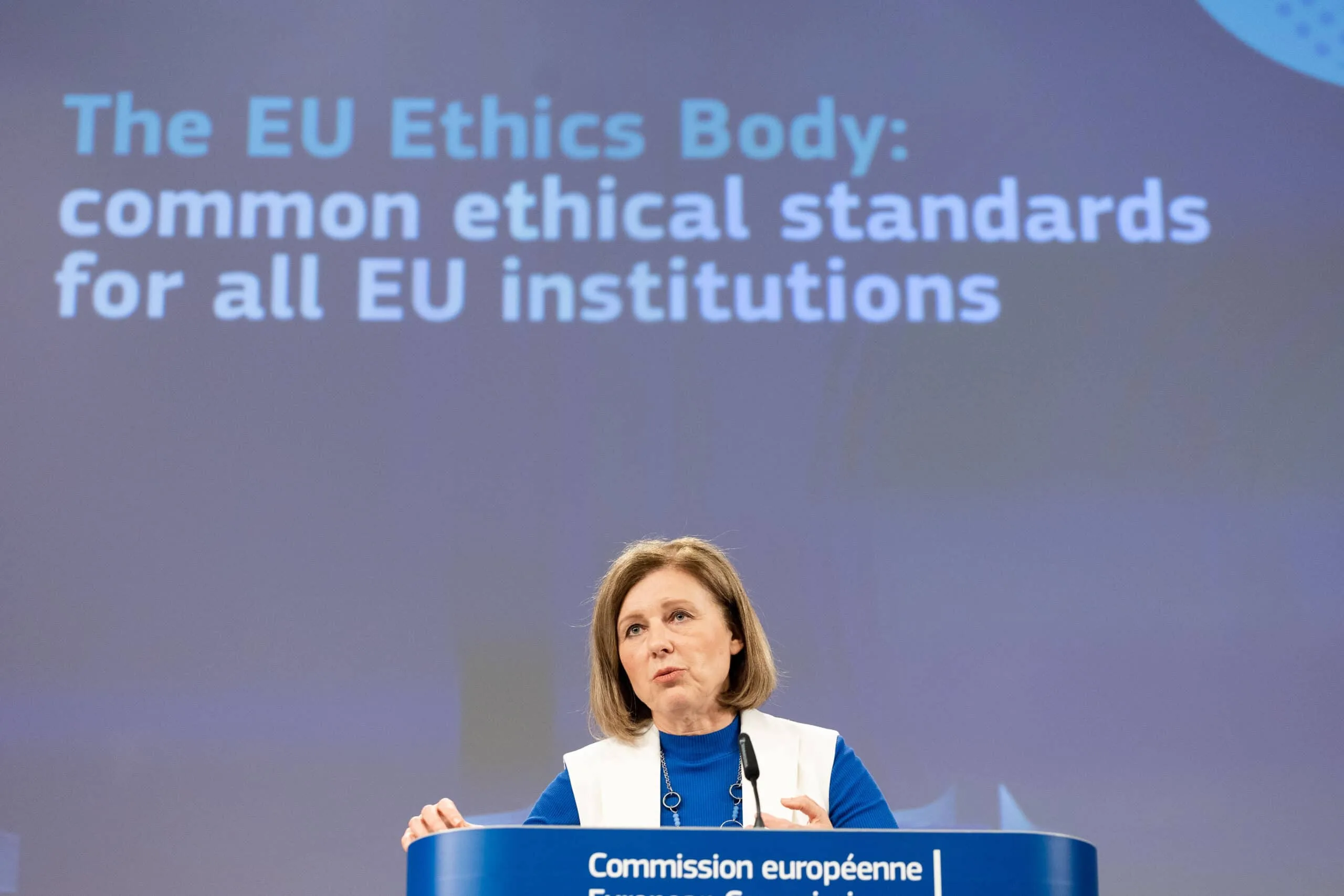Brussels – One of the European institutions’ workhorses to emerge without broken bones from Qatargate is already losing its pieces, even before seeing the light of day. Complex negotiations on the Ethics Body, which is supposed to apply the same standards to the nine European institutions, have stalled over the exit of the European Council and the Council of the European Union.
As early as yesterday (March 12), the President of the European Council, Charles Michel, withdrew from the talks after consulting the member states due to a “lack of unanimity” within the institution. The presidency of the Council of the European Union (the legislative body that brings the member states together at the ministerial level) had to suspend its participation in the agreement on the Ethics Body “because other parties wanted to limit its participation in the decision-making process of the Body,” explains a senior EU official.
The rift happened at the final political meeting that was supposed to give birth to the agreement. “Unfortunately, this led to a situation where the ability of the Council of the EU to make decisions on the development, updating, and deliberation of minimum standards within the Body could be seriously hampered,” the source continued. Hence, the Belgian EU Council presidency’s decision to suspend participation and re-discuss its position on the agreement at the level of permanent representatives of member states.

In the plans of the Vice-President of the European Commission for Policy on Values and Transparency, Věra Jourová, the three main prerogatives of the ethics body would be the development of high ethical standards, the exchange of best practices among the institutions, and the promotion of a culture of European ethics. The body, composed of members from all institutions and some independent figures, would apply a “differentiated approach,” providing a general framework of common standards and leaving each institution free to implement these directions with specific internal rules.
Therein lies the catch: “By initially bringing together nine very different institutions, it was always going to be important to respect the specific peculiarities of each of them,” diplomatic sources point out. Instead, not enough consideration would have been given to the nature of the Council (European as well as of the European Union), which has the particularity of being composed mainly of ministers from member countries who are already bound by their respective national rules of ethical conduct. Rules that apply “everywhere and at all times, even when a minister holds the presidency of the council.”
It is now up to COREPER to indicate the position of the EU Council: participate in the terms of the agreement, do so as a mere observer, or not participate. “If the body eventually sees the light of day and begins to develop standards, it has the potential to send a strong signal to citizens that integrity is fundamental to our European institutions,” the source concludes. Membership would remain with the European Commission, the EU Parliament, the Committee of the Regions, the Economic and Social Affairs Committee, the European Central Bank, the Court of Auditors and the EU Court of Justice.
As far as the European Parliament is concerned, tomorrow (March 14), the Conference of Presidents (the meeting between the chair, Roberta Metsola, and the group leaders) will rule on the mandate to be given to the Constitutional Affairs (AFCO) committee responsible for interinstitutional agreements. Reached by Eunews, Forza Italia MEP and chairman of the AFCO committee, Salvatore De Meo, expressed his regret for the decision by two of the most important institutions of European architecture, which effectively scales back the ambitious goal—and its symbolic significance—of applying the same ethical standards in all EU institutions. “The fact that Michel did not show up at the meeting at all closed the game. You cannot negotiate with those who are not there,” he noted.
English version by the Translation Service of Withub![Interno dell'Europa building, sede del Consiglio europeo dove si riuniscono i leader [archivio]](https://www.eunews.it/wp-content/uploads/2020/09/europa_building-council.jpg.webp)




